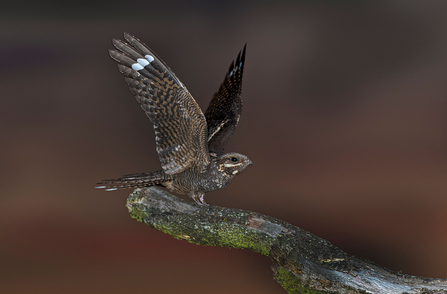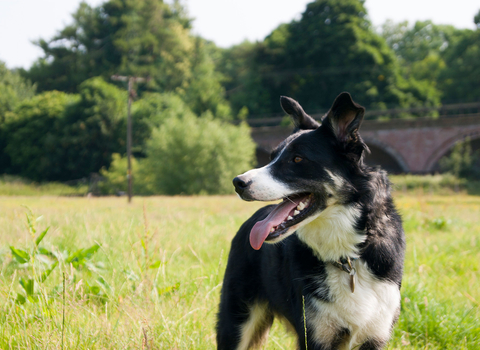Loose dogs are one of the biggest causes of wildlife disturbance – and this is particularly problematic when many species are emerging from hibernation or beginning breeding activity near the ground.
Ground-nesting birds such as Dartford Warblers and Skylark are particularly at risk. Research shows that 66% of ground-nesting birds are in decline in the UK, compared to 31% of other species.
Dogs can also be a threat to sheep, cows and other grazing livestock – with regular problems reported on land owned by Wildlife Trusts. Dog waste, too, is dangerous for wildlife as it can carry diseases, scare away animals and fertilise soils, affecting the natural balance of fragile habitats.
Dog owners can help wildlife by:
· Keeping dogs on short leads on nature reserves and in the wider countryside
· Cleaning up after animals and dispose of dog waste in bins or at home
· Avoiding using nature reserves if walking large groups of dogs
Many of The Wildlife Trusts’ 2,400 nature reserves welcome responsible dog walkers, but instances of dogs disturbing wildlife and livestock have led Wildlife Trusts across the UK to issue a plea ahead of spring.
James Herd, Director of Reserves Management at Surrey Wildlife Trust says:
“Dog ownership can be a great way to enjoy more time outside, but it’s important to be mindful of the impact our companions can have on native birds and animals. With wildlife under more pressure than ever before, we’re asking all dog owners to take special care during the spring and early summer when many species are breeding.
“We use grazing livestock to help manage many of our reserves for nature, and its vital for everyone’s safety that dogs are kept under strict control in these areas.”
The impacts of loose dogs in wild places include trampling nests and scaring adults away from their young. Vulnerable chicks can perish if left alone for too long. Disturbance can also affect feeding and foraging behaviour – wildlife is less likely to breed and feed in areas where dogs are encountered.


